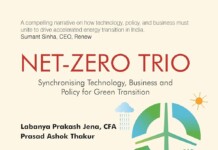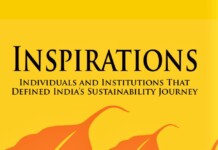- India knows what not to do, but is yet to figure out how to do it, says Jairam Ramesh, former Union Minister of Environment, during a talk at Roundglass Samsara Environment Festival in Bengaluru recently. Excerpts
I can’t think of a civilization in the world that respects nature as Indian civilization did. The Western civilization is based on man’s conquest of nature while the Indian civilization is based on living in harmony with nature.
All this was fine then when the pressure of GDP growth did not exist. We now face the situation of having to ride two tigers – one of economic growth to ensure basic living standards and the other of nature conservation. India can and must show that there is a different way of reconciling the paradox.
Economics teaches only one model – grow now pay later model. This is the Western and Chinese model. Unfortunately, India too seems to be chasing the same model.
One of the advantages of a late comer is that you don’t have to repeat the mistakes committed by the others. Of course we can make our own mistakes as we go along. India has a unique opportunity for showing a unique path.
Demographic Karma
India faces a demographic karma – we are going to add 400 million in the next 30 years. The good news is 80% of the infrastructure is yet to be built. And we don’t have to build this infrastructure in the same energy intensive manner like the West has done and the way we ourselves have built in the last few years.
We are one of the few nations in the world where our population is young. Our median age is 28 and even by 2040 it will be around early 30s. In order to meet the aspiration of these people – we have to embark on a different trajectory.
We need to scale up significantly. But before that scale has to happen in our minds. The set minds thinking is – there is no other way other than ‘grow now pay later’ model.
Many small nations today believe that India is going to be part of the global ecology problem. This is mainly because of the thinking that the developed countries have already polluted the planet and it is our right to do the same.
In order to save ourselves, we have to change the way we are going to do business. I’m happy the stand India took at the Paris Summit in 2015 was different from what it did ten years ago at Copenhagen.
This is a historic time for us. We have the experience of other countries before us. We know what not to do – but are yet to figure out how to do.
The essence of Indian philosophy is ‘Not this, Not this, Not this’ – India understands reality not by understanding what reality is but by denying what reality is not. We know today what not to do. We need the courage of conviction to make that transition from energy, material, carbon intensive to one which is sustainable for us, for our future population and to the world.
We will be doing gross disservice to ourselves if we don’t understand the real pressures. There is the pressure of creating 10 million jobs every year. A conservation-sustainability strategy that denies growth is not going to work.
You have to be able to create public confidence that conservation and sustainability are not anti-investment or anti-growth. It is possible to resolve this conflict. It is going to be messy where there are no easy paths. Sometimes tough decisions have to be taken. Not everyone is going to be happy. If everyone is unhappy with you then we are on the right track.
We have to create – at all levels – state-centre – that India must go on a different path. That growth and sustainability are not antithetical; that there will be tough decisions that are going to be taken.
We have to create a message of hope and celebrate success stories. Governments in democracies will eventually listen to public voices.










